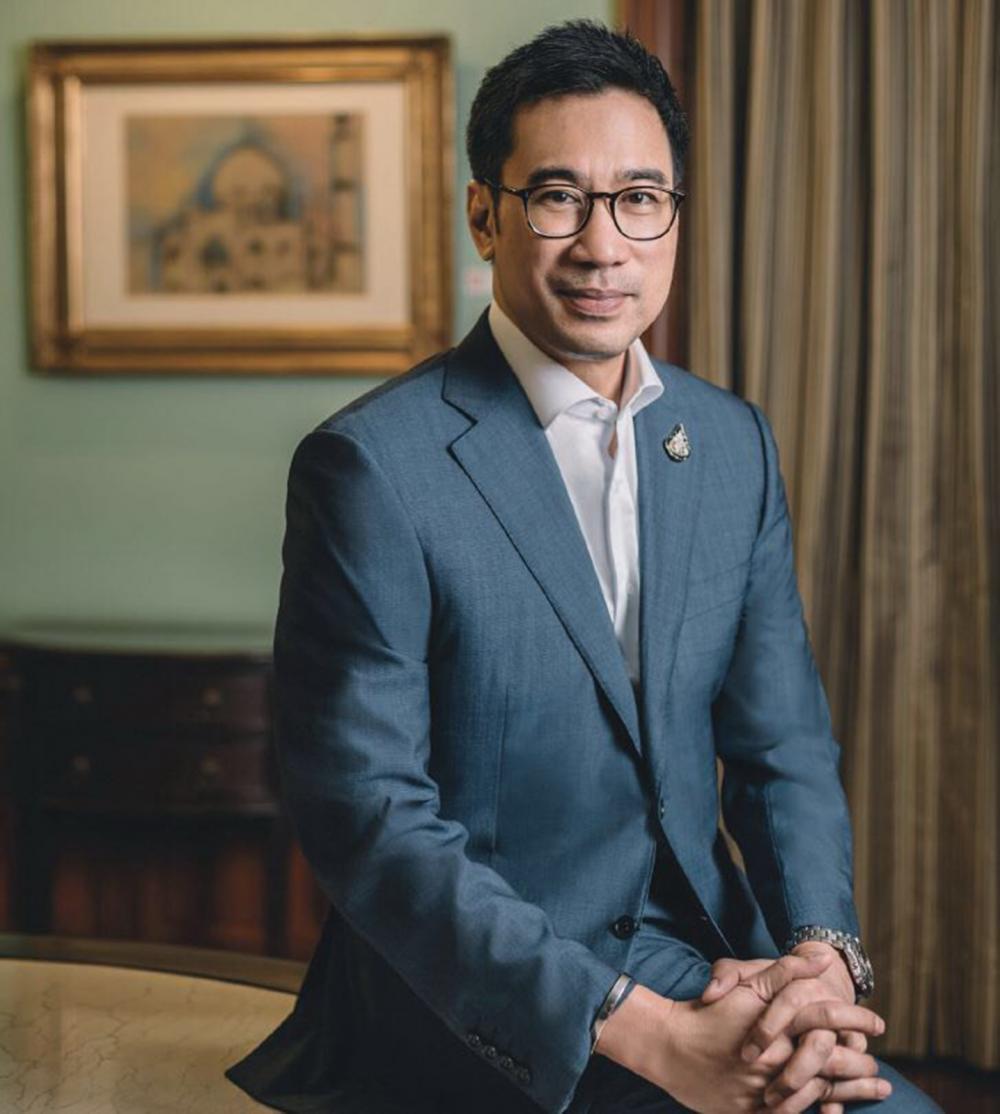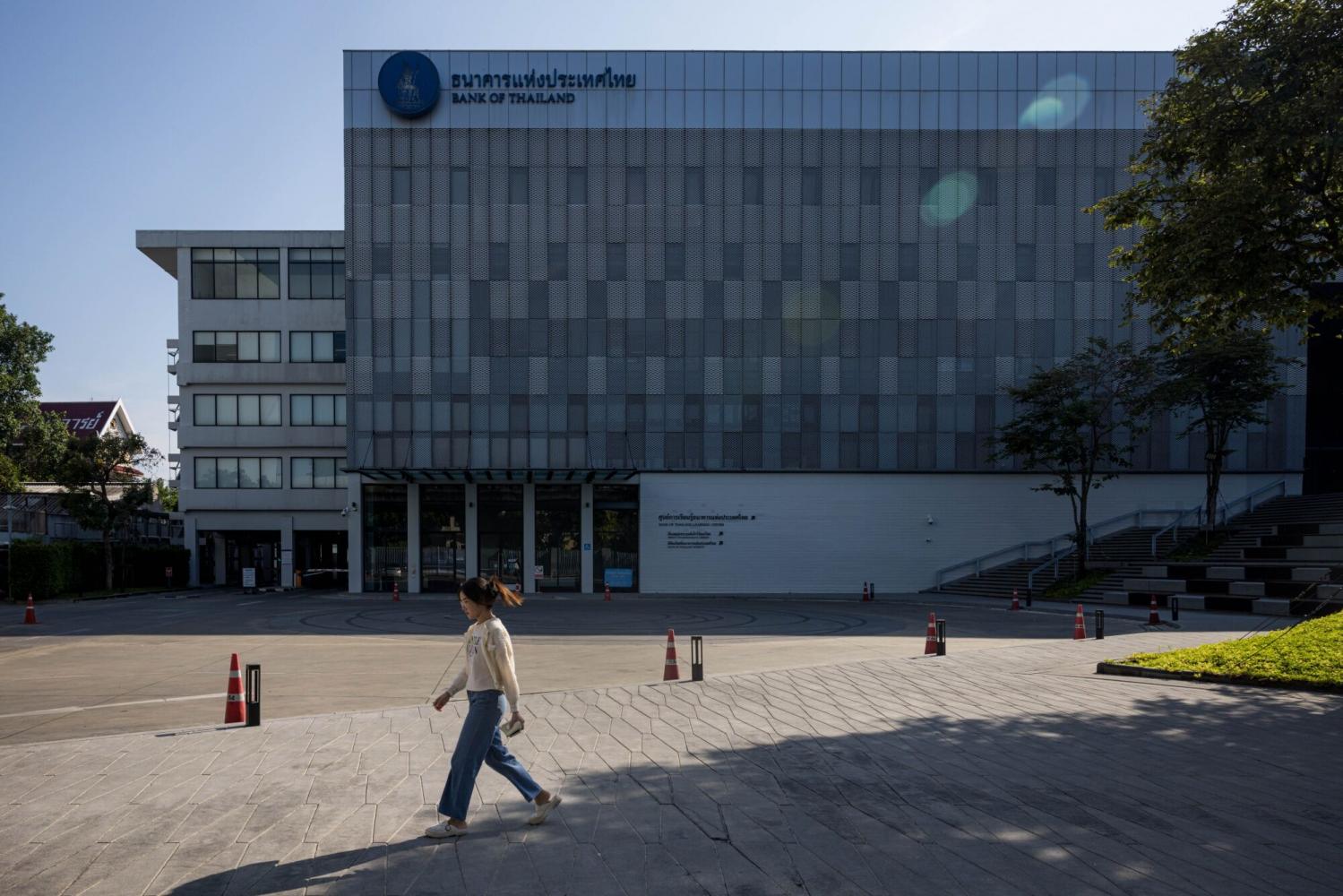
The inconsistent viewpoints of the government's fiscal policymakers, led by the Pheu Thai Party, and the monetary policymakers, led by the Bank of Thailand, indicate a clear rift over the past year.
Pundits are watching closely this week as a meeting is slated for the selection of the new central bank board chairman, after the meeting was postponed from last week when news leaked that Pheu Thai was preparing to propose a candidate with strong connections to the party.
The proposal drew widespread opposition from former Thai central bank leaders, academics and the business sector.
Amid calls to maintain the independence of the central bank, there have also been suggestions the two sides should seek common ground to push policies forward, with the public interest as the main focus.
POLITICAL DISTANCE
According to the Bank of Thailand Act and international standards for central banks, a new central bank chairman should maintain at least a one-year separation from political positions to prevent potential political interference in the regulator's policy management.
This safeguard is meant to protect decisions on key issues such as money supply, policy rates, inflation and foreign exchange rates, said former Bank of Thailand governor Prasarn Trairatvorakul.
Mr Prasarn, along with the Economists for Society Group, recently voiced opposition to political influence in the selection of the bank's board chairman.
The Finance Ministry proposed Kittiratt Na-Ranong, a former commerce minister, as a candidate for the role. Mr Kittiratt previously served as deputy leader and chief economic strategist for the ruling Pheu Thai Party.
He also acted as an advisor to former premier Srettha Thavisin, periodically criticising the central bank's interest rate policy and the regulator's independence. Economists for Society claim Pheu Thai supports Mr Kittiratt, a 66-year-old former deputy prime minister and finance minister, for the post.
Mr Prasarn said the appointment of new members to three key Bank of Thailand committees -- the Monetary Policy Committee (MPC), the Financial Institutions Policy Committee, and the Payment Systems Committee -- requires approval from the regulator's board of directors.
Furthermore, the incoming board chairman will be involved in selecting the next central bank governor in 2025 when the incumbent, Sethaput Suthiwartnarueput, completes his term in September.
Concerns have been raised about political factions gaining influence over the central bank, which could impact the country's economy and inflation.
Populist policies such as the rice pledging programme and the digital wallet scheme have been flagged for their potential economic impacts.
According to Mr Prasarn, political interference in several central banks' monetary policies has often led to negative outcomes. In Turkey, for example, government control over the central bank and its monetary policy led to a sharp rise in inflation and a significant weakening of the lira.
"Maintaining political distance doesn't imply complete independence for the central bank, as it remains a state agency that requires collaboration with the government on policy management," he said.
Mr Prasarn said he and three other former central bank governors opposed a politically-backed chairman based on principle, rather than any personal reasons.
SHARED GROUND
Pongsak Luangaram, an economics teacher at Chulalongkorn University, said the Bank of Thailand and the government need to find common ground, both in the short and long term.
"I think the common goal for both sides is a better economy. The central bank takes a long-term view of the economy, as focusing only on the short term will lead to problems. The solution to economic problems, both in the short and long term, is to address structural issues first, then determine the appropriate tools," he said.
Starting from shared goals, the government needs to look beyond quick wins, such as a growth target of more than 3% next year, which would yield only temporary results, said Mr Pongsak.
Stimulating short-term demand can boost the economy, but its effects will soon fade, he said.
The hidden risk with a stimulus scheme is rising inflation. Inflation does not have to be high -- even at 3% it will push up prices, which rarely decrease once they have risen, said Mr Pongsak.
He said if investors believe Thailand's monetary policy is influenced by political interference, it will harm the country by raising its risk premium, meaning borrowing costs will increase.
Mr Pongsak said monetary policy has both benefits and drawbacks, like two sides of a coin. For example, if interest rates are reduced, borrowers benefit, which positively impacts the economy. However, savers are affected, altering behaviour and leading to a "chase for yield."
He said at certain periods many companies issued perpetual bonds offering high interest rates, but with conditions that were risks investors had to bear. Similarly, whether the baht weakens or strengthens, it has different effects on exporters and importers.
Mr Pongsak also noted the consequences of prolonged low interest rates, such as lower savings and increased consumption, eventually contributing to the current high levels of household debt.
He said Thailand's economic growth rate is not that bad, as there is still demand expansion, albeit at relatively low levels.
Mr Pongsak said the central bank is attempting to maintain this balance, using monetary policy to lift the economy during the pandemic with historic interest rate cuts to support a recovery.
The Thai economy is recovering, albeit more slowly than in some other countries, such as the US, which had to raise interest rates to combat inflation. This shows that excessive growth can lead to high inflation, he said.
Mr Pongsak said Thai consumption has strengthened, but the production sector still faces challenges.
Lowering interest rates might not significantly benefit the production sector, which is being swamped by an influx of substandard Chinese goods. This is a structural issue that needs to be addressed, he said.
DOWN FROM THE IVORY TOWER
Aat Pisanwanich, an independent economist, said both the central bank and the government need to find a suitable balance by engaging in discussions to maintain independence, while working together to drive the economy forward.
Mr Aat, an early proponent of interest rate cuts to support households and small businesses, said maintaining neutrality also requires the central bank to consider the realities of Thailand's economy.
He said the MPC should have lowered rates even before the US Federal Reserve did, as Thailand's inflation rate was very low at just 0.6%.
"The US raised interest rates to tame high inflation. By delaying Thai rate cuts, it seems we are not prioritising our internal economy, but rather tying our policies to those of the US," said Mr Aat.
He also urged the regulator to come down from its "ivory tower", noting while central bank data shows inflation remains low, ordinary people are struggling with rising living costs and higher goods prices. This indicates an over-reliance on numbers that do not reflect the actual reality, said Mr Aat.
The government should represent the people's concerns, meaning this issue needs to be discussed by the regulator, he said.
However, the central bank should not yield to the government on every point, said Mr Aat.
He also raised concerns about the central bank's economic surveys used to calculate inflation, asking whether the goods surveyed include low-cost Chinese products, which could result in lower inflation figures.
Mr Aat advised central bank policy decisions to incorporate data from the government, in addition to considering the impact of Chinese goods on domestic inflation statistics.
A CALL FOR INDEPENDENCE
Sanan Angubolkul, chairman of the Thai Chamber of Commerce, said both monetary policy and fiscal policy need to work in unison to create economic growth and stability.
He said the central bank's main role is to ensure appropriate economic and financial conditions to support the financial stability and economic security of the country. The regulator also manages international reserves and ensures the efficiency, safety and soundness of Thailand's payment systems.
The neutrality and political independence of the central bank is crucial for maintaining economic stability, said Mr Sanan.
Metaphorically, the central bank is like a referee from a third country in a sports competition between two nations whose decision is accepted by all parties, he said.
Therefore, the regulator should be able to perform its duties independently, without political interference, carrying out monetary policy in line with its stated mission.
Sisdivachr Cheewarattanaporn, president of the Association of Thai Travel Agents, said based on the general practices of most countries, the central bank should remain autonomous and free from political interference.
While the government wants to synchronise fiscal measures under the Finance Ministry with monetary measures regulated by the Bank of Thailand, he questioned how the administration could guarantee that appointing someone familiar with the government would lead to successful outcomes for the country.
Mr Sisdivachr said the central bank has yet to make a critical mistake on the Thai economy, which would give the government an excuse to intervene in the selection of the bank's board chairman.
In the tussle with government leaders over an appropriate interest rate, he said the central bank handled this issue thoughtfully.
Mr Sisdivachr said he still believes the regulator should put the benefit of the economy first, not favouring any particular group.
If the central bank's next board chair is deeply connected to politics, any decision made by him or her could be doubted, affecting the trustworthiness of the regulator.
COMMON PROBLEM
Kavee Chukitkasem, head of research and content at Pi Securities, said political intervention at central banks happens in many countries, not only Thailand.
He said the central bank's next board chair should not be a politician because he or she could influence appointments of MPC members.
In the US, the chairman of the Federal Reserve must take a break from the central bank for a certain period of time following the term before joining a political party, said Mr Kavee.
"The Finance Ministry and the central bank should cooperate to carry out policies that support economic growth with controllable risks," he said.
"It would be very dangerous if we could not control risks, similar to a company solely focused on rapid growth, ignoring risk management."
In Mr Kavee's view, a retired prominent finance official would be an appropriate choice for board chair, but not a politician.
Mr Kittiratt is clearly politically involved, said Mr Kavee. Even though there is no law prohibiting Mr Kittiratt's appointment, he said it would be inappropriate to place a politician on the central bank's board.
"We would like the bank's board to listen to the opposition from society and economists on this issue," said Mr Kavee.
A central bank dominated by politics would affect overseas confidence in the economic system, he said, possibly causing foreigners to delay investments.
Thailand has relatively high gross international reserves, and politicians or their allies in central bank board positions may have diverging opinions on managing this money, said Mr Kavee. For example, Pheu Thai leaders previously stated that the large reserve funds should be managed to stimulate the economy through a sovereign wealth fund.
According to central bank data as of August, Thailand has gross international reserves of US$236 billion, which can support imports for up to eight months, or roughly 2.5 times short-term foreign debt, which is much higher than the standard.
PROMISING SIGN
A delay in selecting a new board chair indicates the process is proceeding in the right direction, avoiding political influence, said Apichit Prasoprat, vice-chairman of the Federation of Thai Industries.
"I think this is a good sign, easing the tension that erupted during the selection process," he said.
"The next chair should not be influenced by politics, able to listen to problems from all parties and jointly find solutions."
The board's power to select four of the seven members of the MPC could allow politicians to indirectly interfere with the committee's decisions on interest rates, said economist and former Bangkok senator Chermsak Pinthong.

Mr Sethaput completes his term as central bank governor in September 2025.

As the government and central bank jockey over a new board chair, some pundits advise closer cooperation. Bloomberg